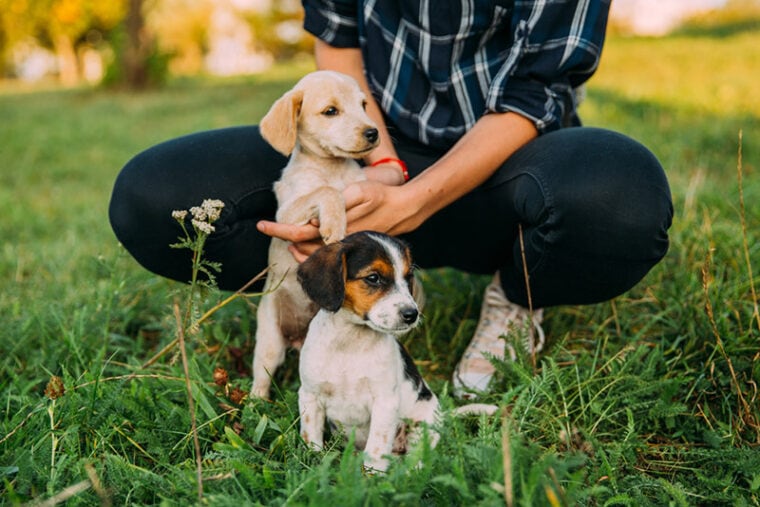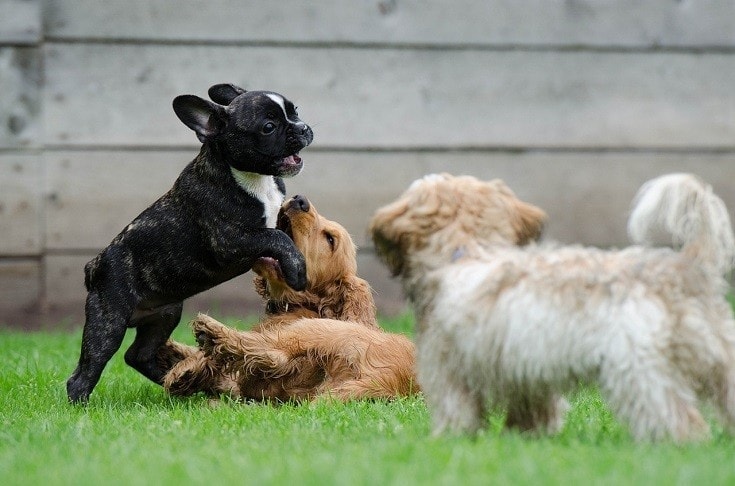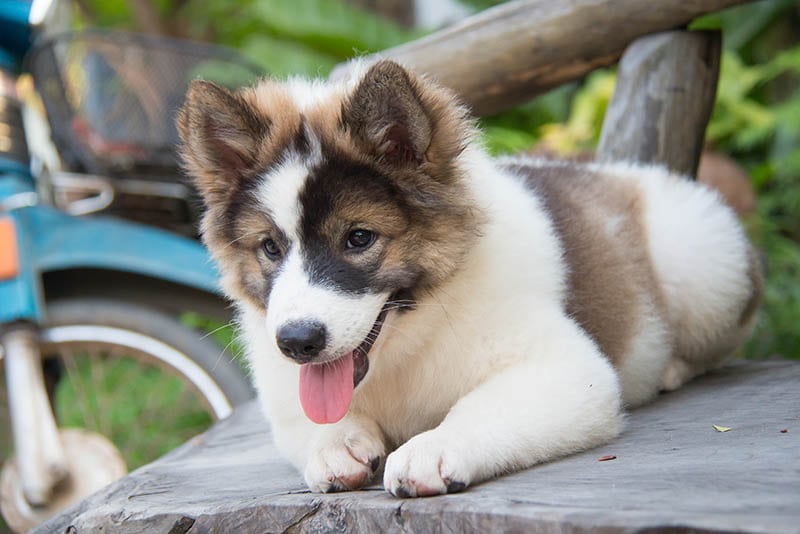
Click to Skip Ahead
Puppies may have short attention spans, but they’re still terrific information sponges. Indeed, what they learn before they’re even 3 months of age will affect their behavior for the rest of their lives. It is your responsibility to take advantage of this critical socialization window to socialize your pup and help them become a well adjusted member of society.
That said, the whole process of puppy socialization can be a bit daunting for new dog owners, so we put together this handy guide to help you navigate each step.
First, though, let’s answer common questions about when and why puppy socialization is so important.
Why Should You Socialize Your Puppy?
Puppy socialization is a critical process that helps your tiny dog become well-adjusted and confident in various social situations. It involves exposing them positively to a wide range of experiences, people, animals, and environments during their early developmental stages. This way, you can help them develop positive associations and exhibit appropriate behavior.
Unfortunately, behavioral problems are among the main causes of the abandonment of dogs in animal shelters, hence the importance of not skipping the socialization period.
Why Is Timing So Important During Puppy Socialization?
Timing is crucial when it comes to puppy socialization. It should ideally begin at 3 weeks of age and continue until around 16 weeks. During this time, puppies are highly receptive to new experiences and more adaptable to change.
But that doesn’t mean your puppy training is over afterward! Socializing your little friend is only the first step in their education, which should continue throughout their life.

Wait at least 1 week after your puppy’s first vaccinations before undertaking socialization exercises outside your home. This will limit their chances of getting sick. Check with your veterinarian for guidance on this.
Step-by-Step Puppy Socialization Process
Here are the main steps of successful (and fun!) puppy socialization:
1. Introduce your puppy to various people
Expose your puppy to people of different ages, sizes, ethnicities, and appearances. Encourage gentle interactions and positive experiences with strangers.
2. Socialize with other dogs
Arrange controlled playdates with other well-vaccinated and friendly dogs. That said, always supervise the interactions to ensure that they are positive and not overwhelming for your little one.

3. Expose them to different environments
Gradually introduce your puppy to different environments, such as parks, streets, car rides, and other public places, to help them become comfortable in these settings.
4. Familiarize them to different sounds
Expose your puppy to various sounds, including traffic noises, vacuum cleaners, doorbells, sirens, and children playing. Start with low volume (when possible!), and gradually increase it as they become more comfortable. Many recorded noises are available for this purpose.

5. Encourage positive experiences with various objects
Introduce your puppy to common objects that they will encounter in daily life, such as umbrellas, bicycles, strollers, and household appliances.
6. Do basic obedience training
Teach them basic commands like sit, stay, and come. This is an absolute must to establish expected behavior and will build a strong bond between you and your puppy.

7. Ensure controlled exposure to children and other animals
If possible, gradually introduce your puppy to well-behaved children and other pets in a safe environment. This helps them learn appropriate behavior and promotes positive socialization.
A Few Things to Keep In Mind for a Smooth Puppy Socialization
Puppy Socialization Checklist
Final Thoughts
Puppy socialization is mandatory to ensure that your sweet pup grows into a well-rounded, easy-going adult dog. Investing time and effort in a good education will prepare your new furry friend for a lifetime of positive social interactions and enriching experiences. Keep in mind that you can always seek the help of a qualified dog trainer or canine behaviorist if you run into tricky issues during this process.
Featured Image Credit: Angyalosi Beata, Shutterstock









